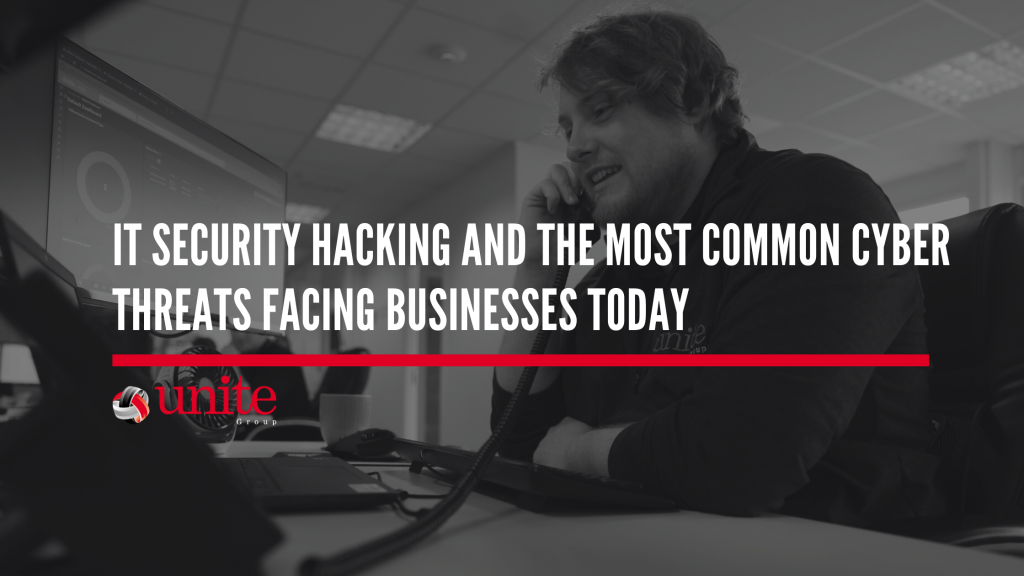
Cyber threats are growing more sophisticated each year, and many UK businesses are struggling to keep up. Whether you’re running a small start-up or a well-established company, the dangers linked to IT security hacking can no longer be ignored. Cyber criminals are constantly looking for new ways to exploit systems, steal sensitive data, and disrupt operations.
It’s no longer just large corporations that need to worry. Small and medium-sized businesses are frequently targeted because they’re often seen as less protected. This blog highlights the most common threats associated with IT security hacking, as well as the practical steps your organisation can take to strengthen its defences.
Why IT Security Hacking Has Become a Widespread Risk
The term “IT security hacking” covers a range of techniques used to gain unauthorised access to systems or data. These techniques include phishing, exploiting weak passwords, deploying malware, and targeting outdated software. For attackers, it’s often about identifying the path of least resistance.
Cyber attacks are rarely random. Hackers may choose targets based on industry, vulnerabilities, or even through automated tools that scan the internet for weak points. The reality is that if you’re connected to the internet, you’re on the radar.
Five Key Threats That Businesses Should Prepare For
1. Phishing and Impersonation Scams
Phishing remains one of the most common methods used by hackers. These scams often arrive as emails or messages that appear to come from trusted sources. They may contain links to fake login pages or files that install malicious software when opened.
Many phishing emails are convincing enough to fool even experienced employees, especially when crafted using information found on public websites or social media.
2. Ransomware Lockouts
Ransomware is a form of malware that encrypts your files, effectively locking you out until a payment is made. These attacks can cause widespread disruption, particularly for businesses without up-to-date backups or a disaster recovery plan. Even if the ransom is paid, there’s no certainty the data will be restored or that the attackers won’t strike again.
3. Outdated Software and System Vulnerabilities
Software companies release regular updates to patch security holes, but if these updates are ignored, systems remain exposed. Hackers actively look for businesses running outdated versions of operating systems, plugins, and applications. Once inside, they can install malware, monitor activity, or gain access to confidential information.
4. Poor Access Control and Weak Passwords
Weak or reused passwords are a common entry point. If multiple staff use the same password, or if login credentials are shared across platforms, attackers can easily compromise your network. Multi-factor authentication is still not widely used among SMEs, leaving critical gaps in security.
5. Human Error and Insider Risks
Not all threats are external. Mistakes made by employees — such as sending data to the wrong person or falling for a scam — can also lead to breaches. In some cases, insider threats may involve deliberate sabotage or data theft from current or former staff.
What Can Businesses Do To Improve Security?
Tackling IT security hacking doesn’t require an unlimited budget or a large in-house IT team. Many risks can be reduced with simple changes and consistent policies:
- Apply software and system updates promptly
- Use strong, unique passwords across all platforms
- Enable two-factor authentication wherever possible
- Restrict access to data on a need-to-know basis
- Train staff regularly on spotting suspicious emails or behaviours
- Back up critical data securely and test your recovery process
- Work with a trusted provider to assess vulnerabilities
Cyber Essentials and Cyber Essentials Plus can also help by ensuring your business meets key technical standards and demonstrates a strong commitment to cyber hygiene.
How The Unite Group Can Help
At The Unite Group, we support organisations of all sizes to identify risks and put the right protections in place. Whether you’re concerned about IT security hacking, looking to strengthen your cyber defences, or preparing for certification, we’ll help simplify the process.
We work closely with clients to conduct cyber risk assessments, close security gaps, and implement practical solutions that match your business needs. Our fixed-cost services offer peace of mind without hidden charges or unnecessary technical jargon.
Take Cyber Security Seriously Before It’s Too Late
IT security hacking is not a question of if, but when. The faster your business adapts, the better your chances of avoiding disruption and financial loss. Cyber threats may be increasing, but so are the tools and strategies to stop them.
If you’re ready to review your current security setup or want expert support with Cyber Essentials, get in touch today. You can reach us at 0191 466 1050 or email info@theunitegroup.co.uk. Our team is here to help you build a safer, more resilient future.
